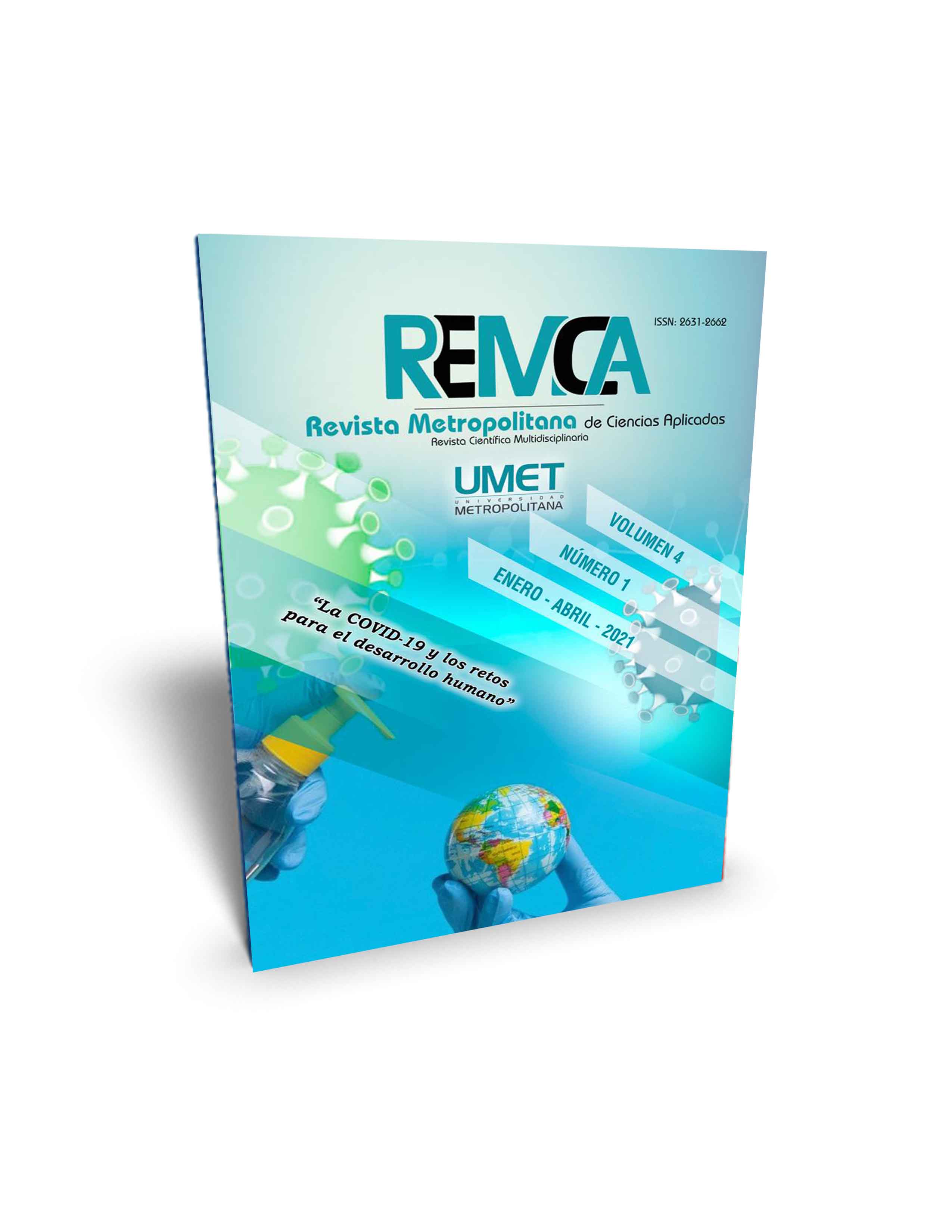Socio-economic opportunieties for the management and characterization of solid waste in municipal supply centers
DOI:
https://doi.org/10.62452/30c1pe97Keywords:
Solid waste, municipal supply centers, strategies, organic waste, added valueAbstract
Solid waste management (RS) is a worldwide problem that has been increased due to factors such as population growth and standard of living, in the city of Machala there is no compliance with the rules, decrees, regulations and ordinances provided in the law, based on this context, the main objective of the research is to establish the socioeconomic opportunities of the management and characterization of solid waste in municipal supply centers through the analysis of the information obtained in order to propose strategies for the generation of direct and indirect jobs, the method used was the interview, which was directed to the manager of the municipal supply centers of the city of Machala, through which it was possible to verify that 3,280 kg of solid waste are currently produced In the June 25 market, most of these are organic waste and do not have an adequate treatment that allows them to generate Rare added value, so there is a great opportunity to add value and produce an alternative that generates income that can be used to improve it and to generate additional sources of employment.
Downloads
References
Argothy, A., & Álvarez, G. (2019). Determinantes de la innovación en empresas propiedad del Estado: evidencia para las empresas públicas de Ecuador. Revista de Administração Pública, 53(1), 45–63.
Banco de Desarrollo de América latina. (2018). Economía circular e innovación tecnológica en residuos sólidos Oportunidades en América Latina. https://scioteca.caf.com/bitstream/handle/123456789/1247/Economia_circular_e_innovacion_tecnologica_en_residuos_solidos_Oportunidades_en_America_Latina.pdf?sequence=9&isAllowed=y
Costa, I., & Ferreira, M. (2020). Evolution on the solid urban waste management in Brazil: A portrait of the Northeast Region. Energy Reports, 6, 878–884.
Ecuador. Gobierno Autónomo Descentralizado Machala. (2020a). Empresa Pública Municipal de Aseo de Machala EMAM-EP. GAD Machala.
Ecuador. Gobierno Autónomo Descentralizado Machala. (2020b). Mercados Machala - Nosotros. GAD Machala.
García, J. (2015). Caracterización de los residuos sólidos ordinarios presentes en el área de interés paisajístico Alonso Vera (Girardot, Cundinamarca) y sus posibles implicaciones ambientales. Luna Azul, (40), 586–598.
Kavals, E., Klavenieks, K., Gusca, J., & Blumberga, D. (2018). Indicator analysis of integrated municipal waste management system. Case study of Latvia. Energy Procedia, 147, 227–234.
Malinauskaite, J., Jouhara, H., Czajczyńska, D., Stanchev, P., Katsou, E., Rostkowski, P., … & Spencer, N. (2017). Municipal solid waste management and waste-to-energy in the context of a circular economy and energy recycling in Europe. Energy, 141, 2013–2044.
Organización de las Naciones Unidas. (2019). Instrumentos para la implementación efectiva y coherente de la dimensión ambiental de la agenda de desarrollo. ONU. https://www.cepal.org/sites/default/files/events/files/taller_implementacion_de_la_dimension_ambiental_en_la_agenda_de_desarrollo.pdf
Perú. Ministerio del Ambiente. (2016). Residuos y áreas verdes. MINAM.
Poças, A., Rok, J., Harmsen, R., Rosales, J., & Worrell, E. (2019). Food waste in an alternative food network – A case-study. Resources, Conservation and Recycling, 149, 210–219.
Rodríguez, A., Palomo, R., & González, F. (2020). Transparencia y economía circular: análisis y valoración de la gestión municipal de los residuos sólidos urbanos. CIRIEC-Espana Revista de Economia Publica, Social y Cooperativa, 1(99), 233–272.
Salazar, C., & Del Castillo, S. (2018). Fundamentos Básicos de Estadística. https://www.coursehero.com/file/38710847/Fundamentos-B%C3%A1sicos-de-Estad%C3%ADstica-Libropdf/
Sanmartín, G., Zhigue, R., & Alaña, T. (2017). El reciclaje: un nicho de innovación y emprendimiento con enfoque ambientalista. Revista Científica Universidad y Sociedad, 9(1), 36–40.
Singh, R. P., Singh, P., Araujo, A. S. F., Hakimi Ibrahim, M., & Sulaiman, O. (2011). Management of urban solid waste: Vermicomposting a sustainable option. Resources, Conservation and Recycling, 55(7), 719–729.
Van der Werff, E., & Steg, L. (2016). The psychology of participation and interest in smart energy systems: Comparing the value-belief-norm theory and the value-identity-personal norm model.
Downloads
Published
Issue
Section
License
Copyright (c) 2021 Viviana Anabel Ocaña Valencia, Harry Vite Cevallos (Autor/a)

This work is licensed under a Creative Commons Attribution-NonCommercial-ShareAlike 4.0 International License.
Authors who publish in Revista Metropolitana de Ciencias Aplicadas (REMCA), agree to the following terms:
1. Copyright
Authors retain unrestricted copyright to their work. Authors grant the journal the right of first publication. To this end, they assign the journal non-exclusive exploitation rights (reproduction, distribution, public communication, and transformation). Authors may enter into additional agreements for the non-exclusive distribution of the version of the work published in the journal, provided that acknowledgment of its initial publication in this journal is given.
© The authors.
2. License
The articles are published in the journal under the Creative Commons Attribution-NonCommercial-ShareAlike 4.0 International License (CC BY-NC-SA 4.0). The terms can be found at: https://creativecommons.org/licenses/by-nc-sa/4.0/deed.en
This license allows:
- Sharing: Copying and redistributing the material in any medium or format.
- Adapting: Remixing, transforming, and building upon the material.
Under the following terms:
- Attribution: You must give appropriate credit, provide a link to the license, and indicate if any changes were made. You may do this in any reasonable manner, but not in any way that suggests the licensor endorses or sponsors your use.
- NonCommercial: You may not use the material for commercial purposes.
- ShareAlike: If you remix, transform, or build upon the material, you must distribute your creation under the same license as the original work.
There are no additional restrictions. You may not apply legal terms or technological measures that legally restrict others from doing anything the license permits.




